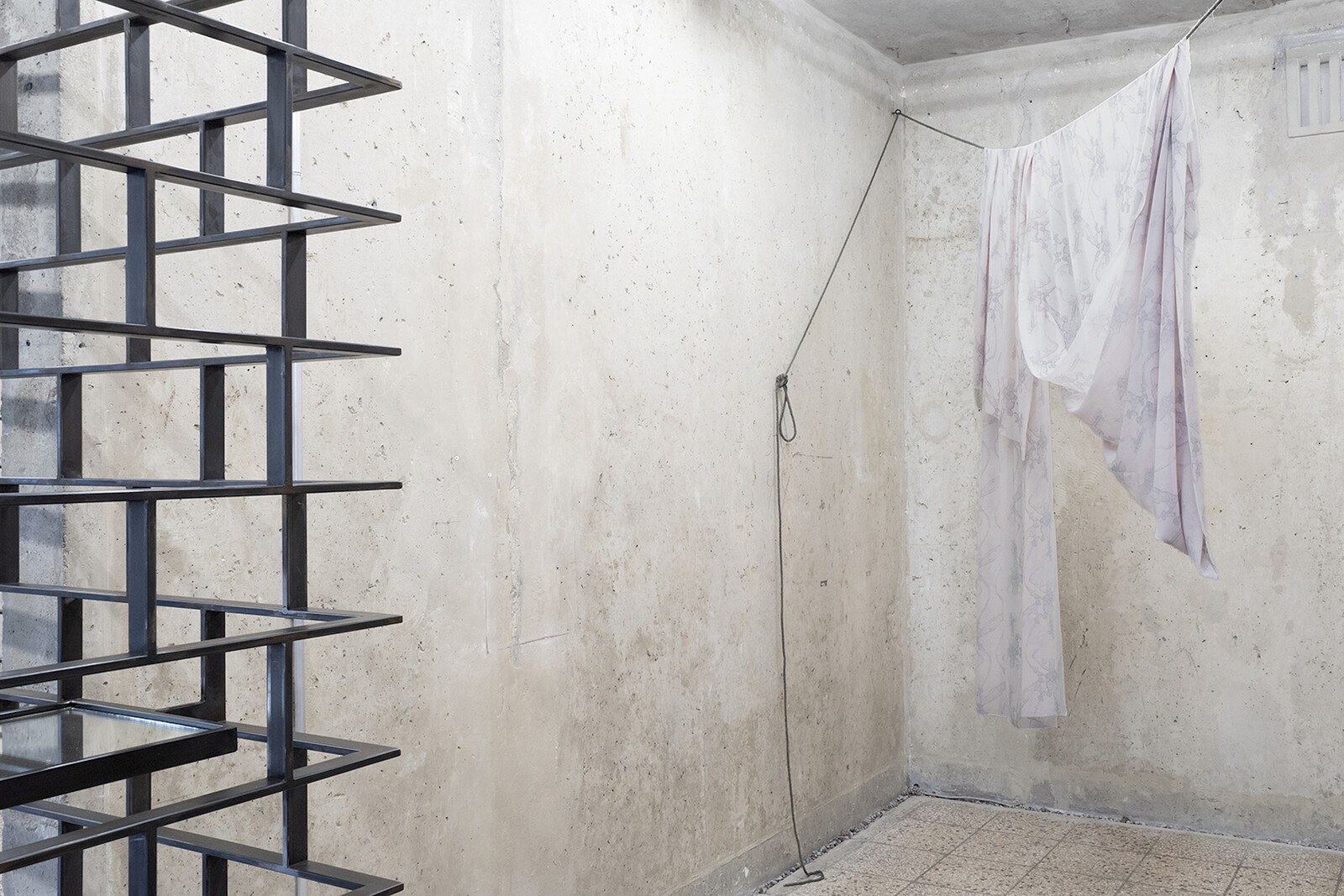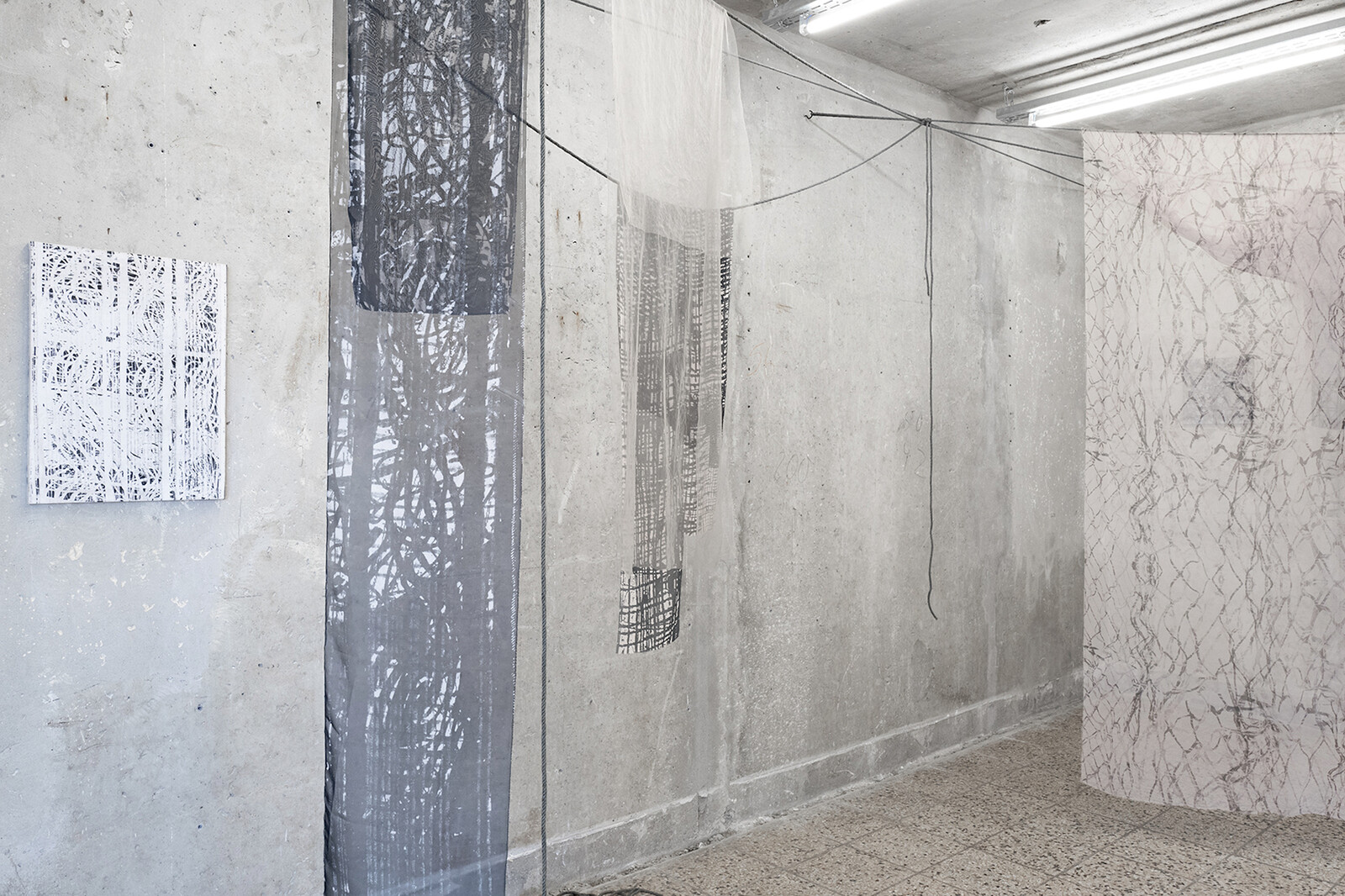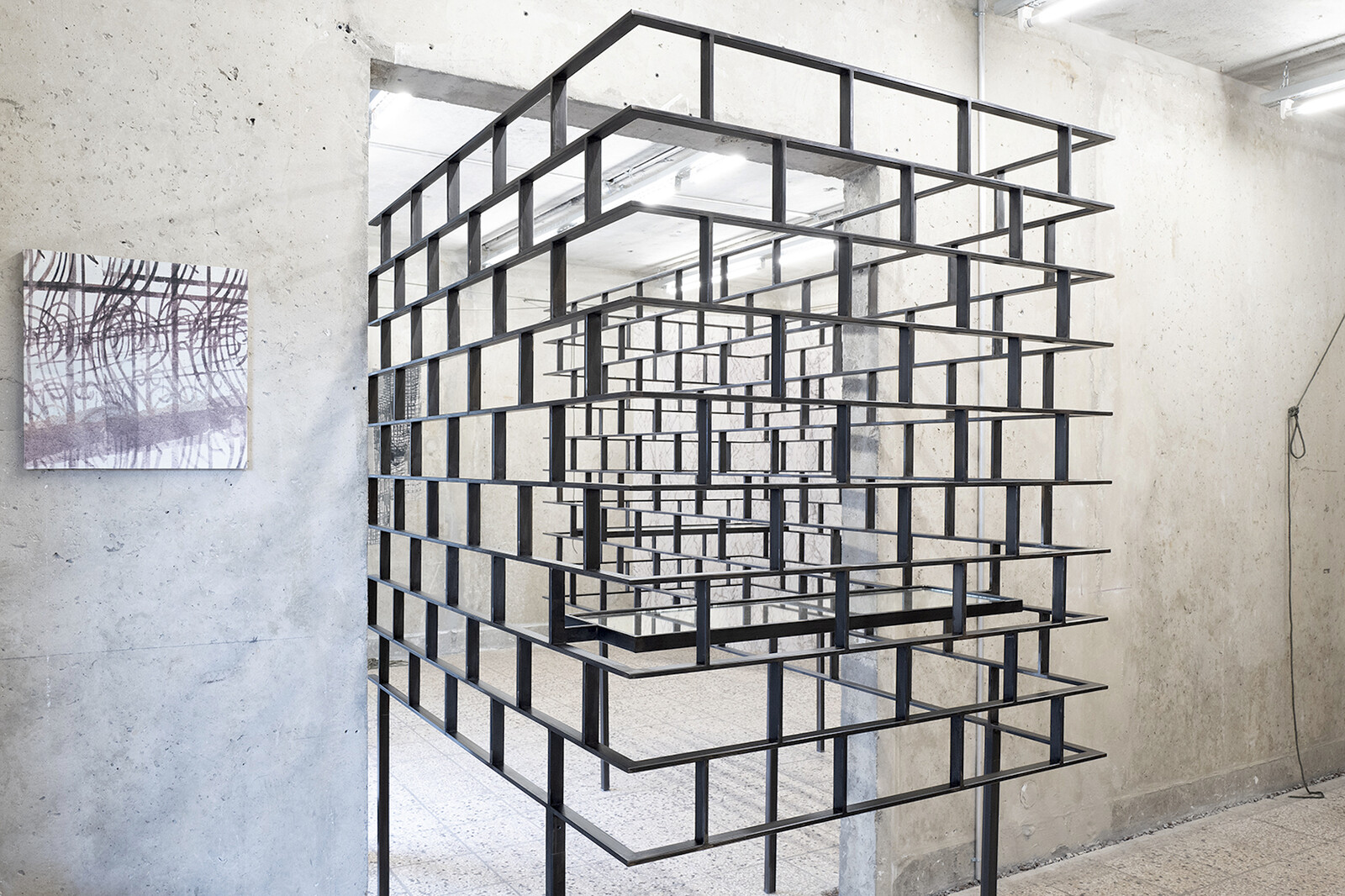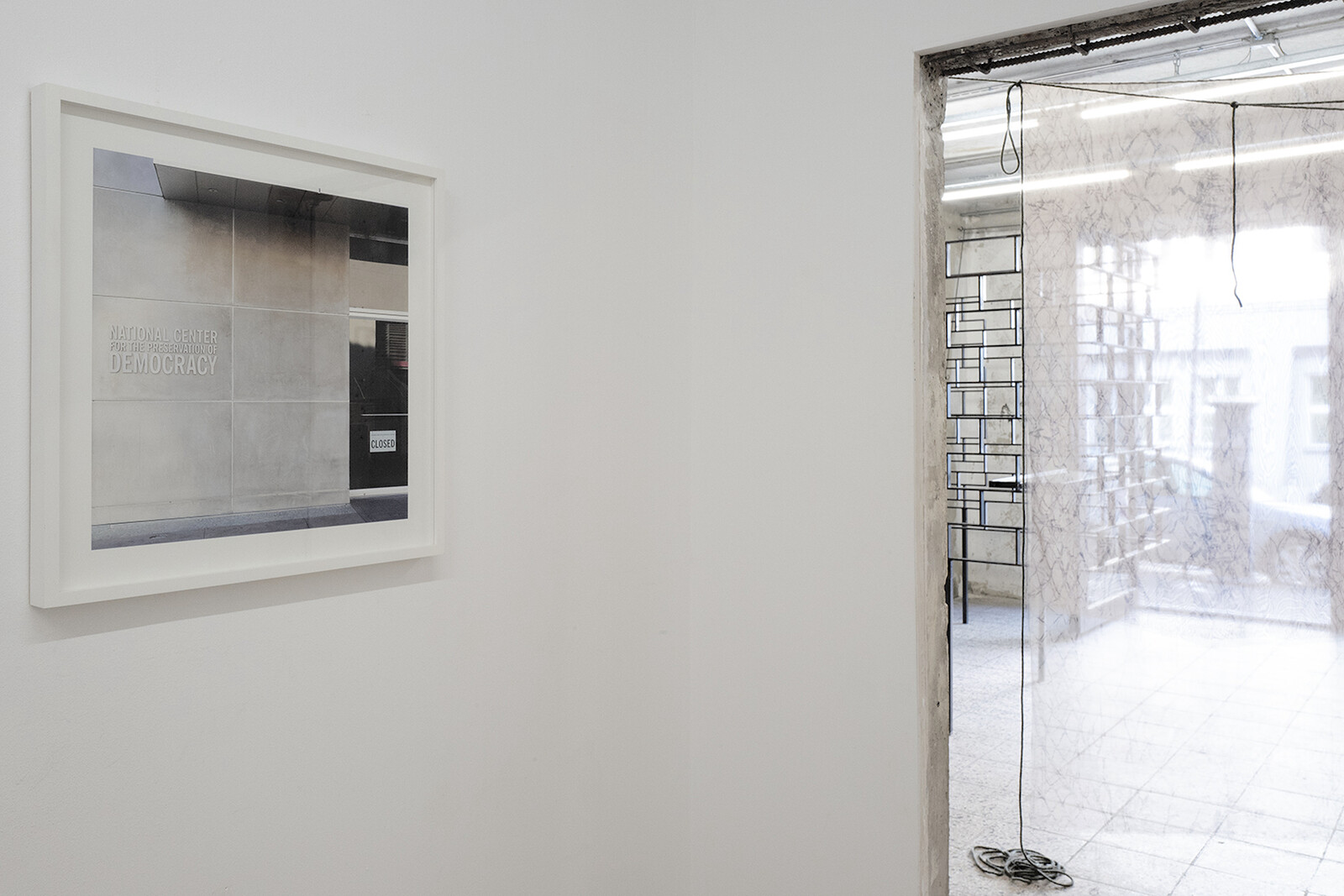Taking its name from Michel Houellebecq’s 2005 novel The Possibility of an Island, this artist-run space in Berlin’s Mitte neighborhood hosts the second iteration of a dual exhibition that hints at the possibility of establishing a space of refuge between divergent positions. Extending a collaboration that began in Tbilisi last year, Sabine Hornig and Tamuna Chabashvili seek to establish some common ground between idealism and pragmatism, collective and individual, order and freedom.
Hornig presents a sculpture and photograph engaging with the sustainability of democracy as it is accosted on all sides by populism, chauvinism, and realpolitik. Wahlkabine (2024) is a freestanding metal structure, the grids of which are patterned like bricks, inspired by Tbilisi balconies. In Georgia, these private-turned-public structures are markers of the turbulent 1990s, when citizens of a fledgling democracy were trying to carve out spaces for themselves in the new post-socialist reality. The architectural structure creates two small rooms that can only be entered from different sides.
Translating as “voting booth,” the sculpture observes you as you observe it. There are small mirrored tables in each of the divided sections, reminding the visitor of their personal responsibilities. In its evocation of the wall that once stood near to this gallery in East Berlin and in its Kafkaesque construction, the work raises difficult questions about the functioning of democracy. Not only in the context of upcoming elections that are likely to be falsified (in, for example, Russia and Georgia) but during a week in which far-right parties gained ground in Germany and across the European Union through the democratic process.
Based in Tbilisi and Amsterdam, Chabashvili works with counternarratives, archives, and historical memory. Seven free-hanging pieces digitally printed on hand-dyed chiffon swayed to the rhythm of Berlin’s warm June breeze when I visited, hinting both at the insecurity of life in Georgia over the past thirty years and, perhaps, the winds of change. In these and six smaller wall-mounted digital prints on velvet, Chabashvili reconstructs the built and psychological environment of the Georgian capital. Overlaid mauve, off-white, and gray patterns reminiscent of archaic script read like layers of memory, a palimpsest of histories much as the architecture of Tbilisi attests to various invasions and expressions of national resilience. Inspired by the Ukrainian women who have been contributing to the war effort by knitting camouflage for soldiers, the artist thus presents a pattern she perceives as stable within the context of political and social uncertainty. The enduring form of the symbol contrasts with the delicate and transitory nature of the material.
It is poignant to encounter these works against the background of the ongoing developments in Georgia, after its pro-Putin government saw through the passage of its “foreign agents law” to curb civil freedoms by stoking division and scapegoating “decadent” western values.1 Despite President Salome Zourabichvili’s efforts to prevent the law from passing, including exercising her presidential veto, the parliament overruled her. The law, which passed on May 28, facilitates “transparency on foreign influence,” including forcing media and non-governmental organizations to register as “organizations acting in the interest of a foreign power.”2 In reality, this law mirrors the legislation enacted in Russia to suppress dissent. Unless 2024 parliamentary elections in Georgia bring drastic change, the country risks being drawn irrecoverably into Putin’s sphere of influence.
In this context, the second iteration of “Patterns of (In)Security” in Berlin foregrounds two pertinent points. The first is that, as citizens, we have agency to make change through the means protected by civil society, as evidenced by the mass protests that have taken place in Georgia over the past month. The second is that unless Georgia, Germany, and other democratic countries break their own patterns of insecurity, addressing their historical pasts and unhealthy present attachments, they are bound to keep suffering different iterations of the same traumas.
Stephen Jones, “Perspectives: Georgia on the Brink,” Eurasianet (June 3, 2024), https://eurasianet.org/perspectives-georgia-on-the-brink.
Rayhan Demytrie, “Georgia parliament overturns veto on foreign agents law,” BBC News (May 28, 2024), https://www.bbc.com/news/articles/cxrre3qy2n4o.




